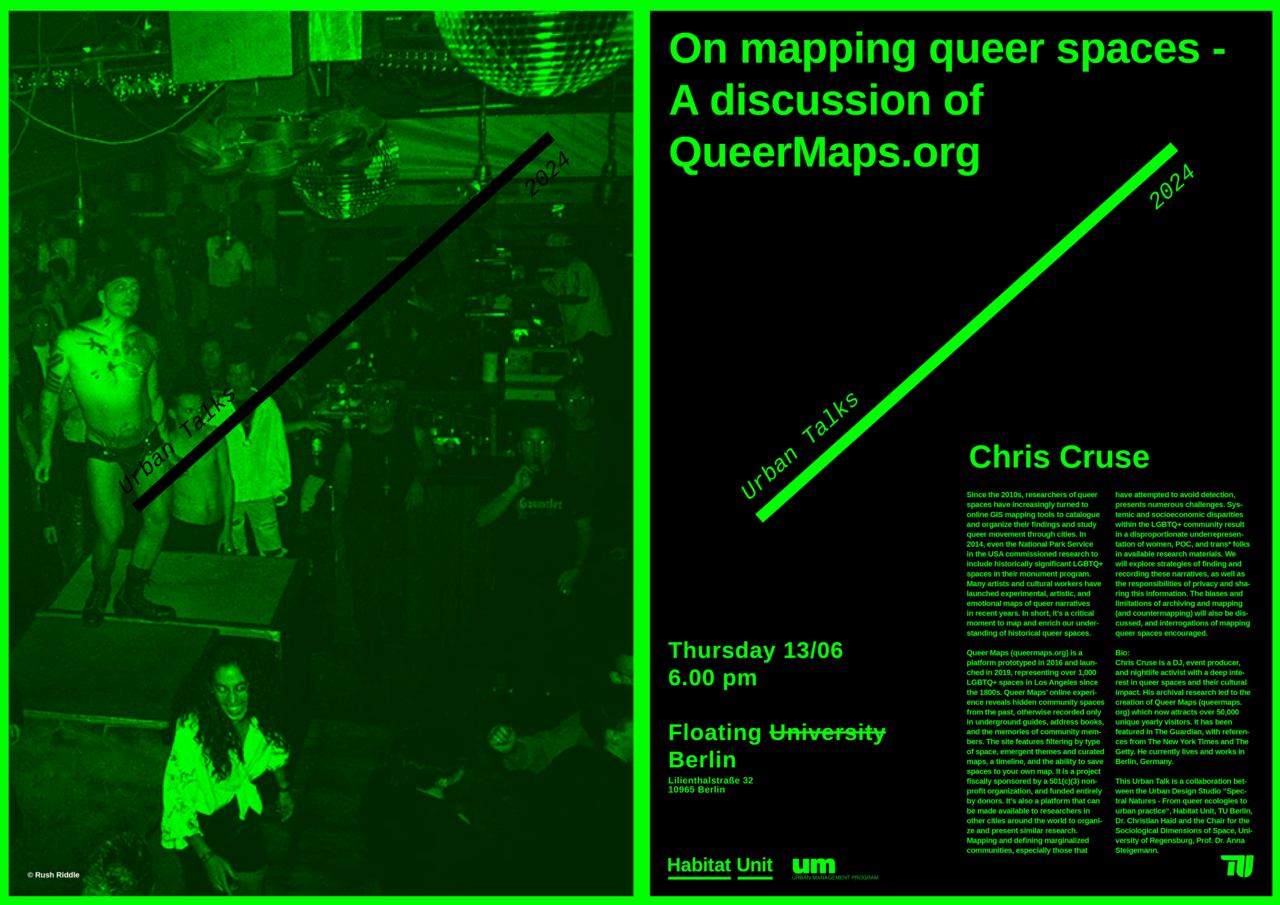URBAN TALK
Thursday, 13.06.2024, 6.00 p.m. | Floating University Berlin
Chris Cruse - On mapping queer spaces -
A discussion of QueerMaps.org
Since the 2010s, researchers of queer spaces have increasingly turned to online GIS mapping tools to catalogue and organize their findings and study queer movement through cities. In 2014, even the National Park Service in the USA commissioned research to include historically significant LGBTQ+ spaces in their monument program. Many artists and cultural workers have launched experimental, artistic, and emotional maps of queer narratives in recent years. In short, it’s a critical moment to map and enrich our understanding of historical queer spaces.
Queer Maps is a platform prototyped in 2016 and launched in 2019, representing over 1,000 LGBTQ+ spaces in Los Angeles since the 1800s. Queer Maps’ online experience reveals hidden community spaces from the past, otherwise recorded only in underground guides, address books, and the memories of community members. The site features filtering by type of space, emergent themes and curated maps, a timeline, and the ability to save spaces to your own map. It is a project fiscally sponsored by a 501(c)(3) non-profit organization, and funded entirely by donors. It’s also a platform that can be made available to researchers in other cities around the world to organize and present similar research.
Mapping and defining marginalized communities, especially those that have attempted to avoid detection, presents numerous challenges. Systemic and socioeconomic disparities within the LGBTQ+ community result in a disproportionate underrepresentation of women, POC, and trans* folks in available research materials. We will explore strategies of finding and recording these narratives, as well as the responsibilities of privacy and sharing this information. The biases and limitations of archiving and mapping (and countermapping) will also be discussed, and interrogations of mapping queer spaces encouraged.

Chris Cruse is a DJ, event producer, and nightlife activist with a deep interest in queer spaces and their cultural impact. His archival research led to the creation of Queer Maps which now attracts over 50,000 unique yearly visitors. It has been featured in The Guardian, with references from The New York Times and The Getty. He currently lives and works in Berlin, Germany.
This Urban Talk is a collaboration between the Urban Design Studio “Spectral Natures - From queer ecologies to urban practice“, Habitat Unit, TU Berlin, Dr. Christian Haid and the Chair for the Sociological Dimensions of Space, University of Regensburg, Prof. Dr. Anna Steigemann.
Click here to download the poster.